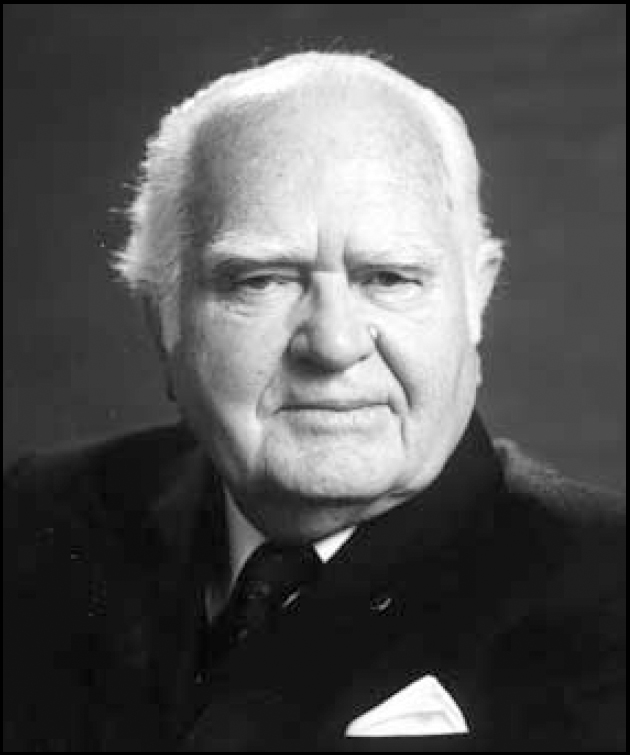Joze Jancar was one of the greatest figures in the field of the care of those with learning disability in the latter half of the last century.

Joze was born near Ljubljana, in Slovenia, then part of Yugoslavia, on 23 May 1920. While at school, at Christmas 1939, he was a guest of King Peter II of Yugoslavia as one of the 40 best students from that country. He was awarded the King Peter II Medallion.
In 1942 Joze became a medical student at the University of Ljubljana, but his studies were interrupted when the Italians invaded Yugoslavia and he and his wife-to-be, Marija, a fellow medical student, were interned. They were held in a room with about 18 other internees, from whom a number were called out each day and shot, depending on how many Italians had been killed by partisans the previous night. Fortunately, Joze and Marija were among the lucky survivors and, in due course, found themselves in a displaced persons' camp in Lienz in Austria, where they married in October 1945. Working at the camp was Iris Murdoch, the novelist, who became godmother to their daughter, Sonja. As a confirmed Royalist, Joze was persona non grata with President Tito and it was not safe for him to visit his native land again until after Tito's death.
At the end of the war Joze and Marija arrived in England, via Eire. They spoke very little English, and were employed as nurses in Bristol, on the wards of Hortham Colony (as it was then called) and the Bristol Royal Infirmary. Eventually, through the good offices of the late Dr John Lyons, medical superintendent of Hortham Colony, Joze was able to resume his medical studies at University College, Galway. Still with very little command of English, his interview for acceptance at the College was conducted in Latin.
Joze qualified MB, BCh, BAO in 1952 and entered the field of mental health as an assistant medical officer at Ballinasloe Mental Hospital, Galway. He obtained his specialist qualification, the Diploma in Psychological Medicine in 1955, becoming a registrar at Mercers Hospital, Dublin, before being appointed junior hospital medical officer in the Stoke Park Mental Handicap Hospital Group, Bristol, in 1956: this at a time when learning disabilities was the least glamorous, fashionable or respected branch of medicine, surviving on shoe-string budgets, with very little known of the causes and prevention of the condition. Joze rose through the rank of senior hospital medical officer, to be appointed consultant psychiatrist in 1962.
Joze was to play an immense part in transforming the Stoke Park Hospital Group from a predominantly custodial institution into one with an open therapeutic philosophy, and into becoming a Department of Mental Handicap of Bristol University. To the end, Joze always referred to his patients as people ‘with mental handicap’ rather than using the politically correct euphemism, ‘learning disabilities’, which he regarded as projecting too limited an image of the real problem.
Joze observed with ever-increasing sadness and bitterness the destruction and dismemberment of the comprehensive hospital-based service for people with learning disabilities and their families (in the development of which he had played such an important part) without the provision, in its place, of an adequate caring community service.
In the face of the general public's unrealistic expectations of psychiatry, one of Joze's favourite sayings was ‘We are physicians not magicians!’
Throughout his career, and after his retirement in 1985, Joze continued the long tradition of research at Stoke Park, established by Professor Berry, Dr Ronald Norman and Dr John Fraser Roberts. Apart from his joint authorship with the consultant pathologist, Dr Robert Eastham, of the major textbook, Clinical Pathology in Mental Retardation, he published over 100 papers, many of which he presented at 26 International Conferences all over the world. Joze was awarded the Burden Research Gold Medal and Prize in 1971, was Blake Marsh Lecturer of the Royal College of Psychiatrists in 1974 and, in 1985, received the prestigious Distinguished Achievement Award for Scientific Literature, of the IASSMD (The International Association for the Scientific Study of Mental Deficiency), of which he was a Fellow. Just prior to his death, Joze had been nominated for the Scientific Research Award of the Kennedy 2000 International Awards in Mental Retardation, the recipient of which has yet to be announced.
Among the many other well-deserved honours, of which Joze was justly proud, were his appointment in 1979 as Liveryman and Freeman of the City of London, his Vice Presidency of the Royal College of Psychiatrists in 1981 and his election in 1998 as an Honorary Fellow of the College.
As a young man he was a cross-country ski champion and continued to take an active interest in all sports, but particularly rugby football, and was a member of Bristol Savages. He was devoted to his closely-knit family of Marija and their children Sonja, Joseph and Martin.
Joze was a most loyal colleague and friend, a warm, compassionate man, with a deep concern for those less fortunate than himself. His keen sense of humour lightened the burden of all those with whom he came in contact. This was very apparent in the last few painful weeks of his life, even though he was fully aware of the inevitable outcome of his illness. At this time he was sustained by his deep Roman Catholic faith. He died on 14 March 2000.
A Service of Thanksgiving was held at Clifton Cathedral, Bristol, at 12 noon on Tuesday 23 May.
His irreplaceable presence will be especially missed at the annual dinner given for Honorary Fellows of the College, an event due largely to his inspired suggestion made in 1991.





eLetters
No eLetters have been published for this article.